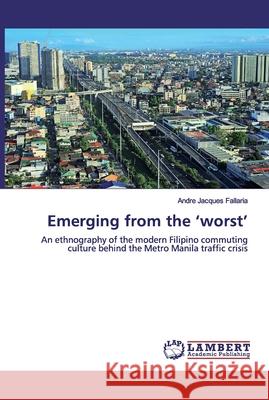Emerging from the 'worst' » książka
Emerging from the 'worst'
ISBN-13: 9786139477067 / Angielski / Miękka / 2019 / 200 str.
Metropolitan Manila in the Philippines has gained the world's limelight as it was once named as the 'worst' in terms of its heavy traffic scenarios. In the 12.8 million trips per day in Metro Manila, 69 percent of these trips are from the commuters who use public transport yet such sector only occupies 22% of the urban road network whereas 78% are taken by private motor vehicles. Along with the Metro Manila traffic crisis, many issues have been raised also from the public transportation sector which has made the ground for the emergence of the so-called modern Filipino commuting culture. From such, this ethnographic study has clearly defined its primary objective: justification of the emerging culture. Such aim is also supported by corresponding specific objectives which were concerned on the roots, the commuting environment, consequences, coping mechanisms and desires for better commuting experiences as all of these reflect the Filipino culture and values. Covert participant observation of the Metro Manila commuting public and unstructured personal and synchronous interview of informants were the data collection methodologies that were applied in the study.











